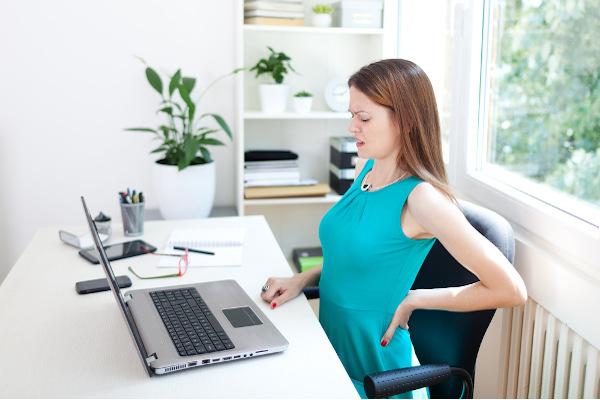THE good posture it is an issue that goes far beyond aesthetics, being directly related to our health. The correct alignment of our body allows us to have more precise and more efficient movements, in addition to providing well-being, since the correct posture does not overload our muscles and bones. Poor posture can be responsible for triggering changes in the spine, as is the case with scoliosis.
Read too: How poor posture can harm students?
What is having good posture?
We can define good posture as one in which our body acquires a specific position to perform an activity. This position is achieved with the minimal muscle effort, all bones, muscles and joints being aligned. In proper posture, our body is able to distribute loads evenly and conserve energy. When we have bad posture, we overload our body, triggering pain and changes in the spine, for example.

How to have a good posture in everyday life?
We must take care of our posture in all the activities we are going to perform, even during leisure time, such as watching television. Here are some tips to improve your posture and
protect your spine!
- When walking, keep your back straight, your abdomen tight, and look straight ahead.
- When you have to pick up something on the floor, don't bend your back. To lower, bend your knees.
- To transport heavy bags, for example, do not carry them in just one hand. Distribute the weight.
- never use backpacks using only one handle.
- When sweeping the house, use a broom with a handle suitable for your height. Avoid leaning forward.
- When tying shoes, avoid bending your spine. Try to sit up and cross your legs to reach your shoes or bend down by bending your knees.
- As you sit, make sure your spine is straight, your back is supported by the back of the chair, and your feet are flat on the floor. Avoid crossing your legs.

- When using the computer, keep the screen at eye level.
- To pick up an object from a high place, climb a ladder, chair, or bench. Avoid trying to pick up the object by raising your arms and standing on tiptoe.
- When using the mobile phone, keep the device at eye level. Avoid bending your head down.
- To sleep, one of the recommended ways is to lie down on your side and use a pillow that fits perfectly into the space formed by your head and shoulder. To keep your spine straight in this position, it is recommended to use a pillow between your legs. Another position that helps protect our spine at night is to lie on your stomach and place a pillow under your head and another under your knees. It is worth noting that the prone position is not advisable because it strains the spine.
- When getting up, it is important to turn on your side, supporting yourself on your arms and lifting your legs off the bed.
Read too: How to avoid back pain?
Postural deviations
One bad posture may be responsible for causing deviations in spine,structure of the body formed by a series of bones (vertebrae) and which serves as the main support axis of the Human Body. These deviations are dangerous because, over time, they can be responsible for problems such as wear on the joints and pinched nerves that depart from the spine.
- Hyperlordosis: problem in which an abnormal increase in curvature of the lower part of the spine is observed. This curvature makes the buttocks more prominent, as well as the belly more prominent.
- Hyperkyphosis: it occurs when we have an abnormal increase in chest concavity. This increased curvature causes the shoulders to be forward and the person into a “hunchback” position.
- Scoliosis: generates a lateral curvature of the spine. This curvature causes asymmetries in the trunk, with one shoulder being higher than the other.
Spine deviations can be treated, and the treatment depends on the severity of each case and the type of postural deviation you are experiencing. O postural vest can be used to prevent advancing the problem. O roleplaying (Global Postural Re-education) can also be recommended in cases of postural deviation, in order to prevent the progression of the problem, correct posture and relieve pain resulting from changes in the column. We must also mention the surgeries, which are recommended in more severe cases.
By Vanessa Sardinha dos Santos
Biology teacher


